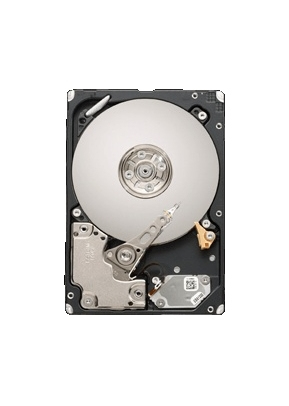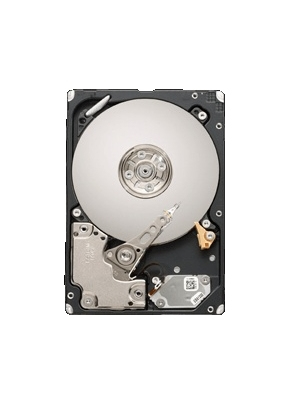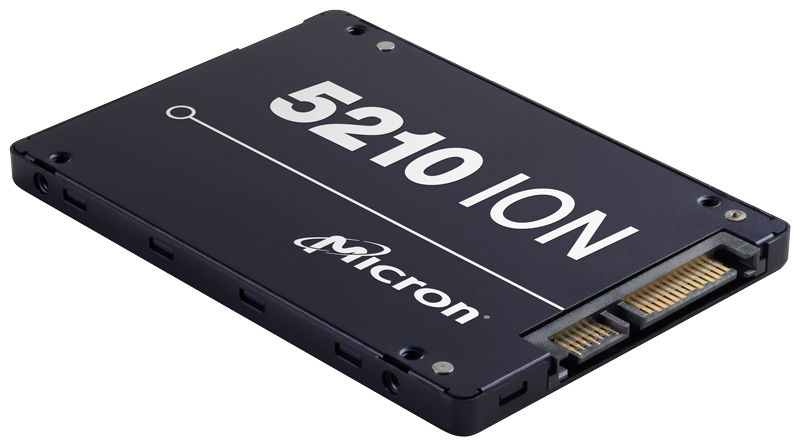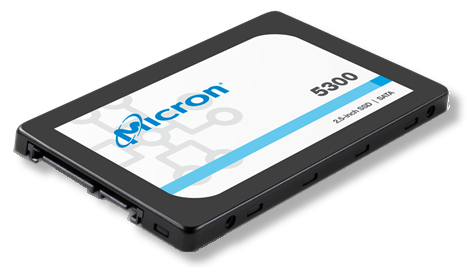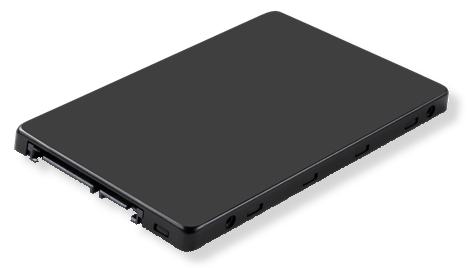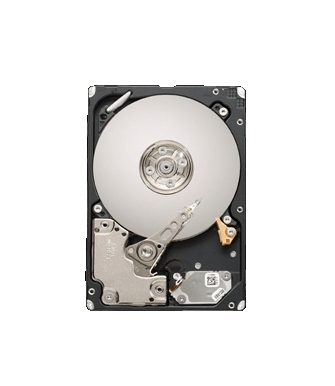Data Storage
4650 –
4660
of
5710
Availability
Sort by
Advance Filters
Lenovo
Lenovo 4XB7A13555 Lenovo 4XB7A13555 internal hard drive 2 TB 7200 RPM 3.5" Serial ATA III
Lenovo offers a broad range of hard disk drives (HDD) ranging from entry-level drives to industry leading capacity and high-RPM offerings. Lenovo HDDs are optimized to deliver maximum performance on Lenovo ThinkSystem servers and all HDDs undergo stringent compatibility and reliability testing to ensure best performance in 24x7 operational environments.
Part# 4XB7A13555
SKU S19454
Lenovo
Lenovo 4XB7A13554 Lenovo 4XB7A13554 internal hard drive 1 TB 7200 RPM 3.5" Serial ATA III
Lenovo offers a broad range of hard disk drives (HDD) ranging from entry-level drives to industry leading capacity and high-RPM offerings. Lenovo HDDs are optimized to deliver zaximum performance on Lenovo ThinkSystem servers and all HDDs undergo stringent compatibility and reliability testing to ensure best performance in 24x7 operational environments.
Part# 4XB7A13554
SKU S19454
Lenovo
Lenovo 4XB7A38144 Lenovo 4XB7A38144 internal solid state drive 1.92 TB 2.5" Serial ATA III QLC 3D NAND
The 5210 Entry SATA QLC solid-state drives (SSDs) are low-cost SSDs for ThinkSystem servers. The drives use Micron 64-layer 3D QLC NAND flash memory technology with a SATA 6Gbps interface and provide an affordable solution for large-capacity sequential read-intensive applications such as AI and machine learning data lakes, real-time analytics, and big data.This product guide provides essential presales information to understand the 5210 Entry SSD offerings, their key features and specifications, components and options, and configuration guidelines. This guide is intended for technical specialists, sales specialists, sales engineers, IT architects, and other IT professionals who want to learn more about the SSDs and consider their use in IT solutions.The 5210 Entry SATA solid-state drives (SSDs) are low-cost SSDs for ThinkSystem servers. The drives use Micron 64-layer 3D QLC NAND flash memory technology with a SATA 6Gbps interface and provide an affordable solution for large-capacity sequential read-intensive applications such as AI and machine learning data lakes, real-time analytics, big data, and media streaming.
Part# 4XB7A38144
SKU S19454
Lenovo
Lenovo 4XB7A17089 Lenovo 4XB7A17089 internal solid state drive 960 GB 2.5" Serial ATA III 3D TLC NAND
AbstractThe ThinkSystem 5300 Mainstream SATA 6Gb solid-state drives (SSDs) use Micron NAND flash memory technology with a SATA 6Gbps interface to provide an affordable solution for mixed read/write workloads.This product guide provides essential presales information to understand the 5300 Mainstream SSD offerings, their key features and specifications, components and options, and configuration guidelines. This guide is intended for technical specialists, sales specialists, sales engineers, IT architects, and other IT professionals who want to learn more about the SSDs and consider their use in IT solutions.Change HistoryChanges in the January 7 update:- Added SR850P to the server support table (no support) - Server support sectionIntroductionThe ThinkSystem 5300 Mainstream SATA 6Gb solid-state drives (SSDs) use Micron 96-layer 3D NAND flash memory technology with a 6Gbps SATA interface. They provide an affordable solution for mixed read/write applications such as cache in transactional applications and high-speed storage for enterprise databases.SSDs have a huge but finite number of program/erase (P/E) cycles, which affect how long they can perform write operations and thus their life expectancy. Mainstream SSDs typically have a better cost per read IOPS ratio but lower endurance and performance compared to Performance SSDs. SSD write endurance is typically measured by the number of program/erase cycles that the drive can incur over its lifetime, which is listed as total bytes written (TBW) in the device specification.The TBW value that is assigned to a solid-state device is the total bytes of written data that a drive can be guaranteed to complete. Reaching this limit does not cause the drive to immediately fail; the TBW simply denotes the maximum number of writes that can be guaranteed. A solid-state device does not fail upon reaching the specified TBW. However, at some point after surpassing the TBW value (and based on manufacturing variance margins), the drive reaches the end-of-life point, at which time the drive goes into read-only mode. Because of such behavior, careful planning must be done to use SSDs in the application environments to ensure that the TBW of the drive is not exceeded before the required life expectancy.For example, the 5300 Mainstream 1.92 TB drive has an endurance of 17,520 TB of total bytes written (TBW). This means that for full operation over five years, write workload must be limited to no more than 9,600 GB of writes per day, which is equivalent to 5.0 full drive writes per day (DWPD). For the device to last three years, the drive write workload must be limited to no more than 16,000 GB of writes per day, which is equivalent to 8.3 full drive writes per day.
Part# 4XB7A17089
SKU S19454
Lenovo
Lenovo 4XB7A17087 Lenovo 4XB7A17087 internal solid state drive 240 GB 2.5" Serial ATA III 3D TLC NAND
The ThinkSystem 5300 Mainstream SATA 6Gb solid-state drives (SSDs) use Micron NAND flash memory technology with a SATA 6Gbps interface to provide an affordable solution for mixed read/write workloads.This product guide provides essential presales information to understand the 5300 Mainstream SSD offerings, their key features and specifications, components and options, and configuration guidelines. This guide is intended for technical specialists, sales specialists, sales engineers, IT architects, and other IT professionals who want to learn more about the SSDs and consider their use in IT solutions.The ThinkSystem 5300 Mainstream SATA 6Gb solid-state drives (SSDs) use Micron 96-layer 3D NAND flash memory technology with a 6Gbps SATA interface. They provide an affordable solution for mixed read/write applications such as cache in transactional applications and high-speed storage for enterprise databases.
Part# 4XB7A17087
SKU S19454
Lenovo
Lenovo 4XB7A38272 Lenovo 4XB7A38272 internal solid state drive 2.5" 480 GB Serial ATA III TLC
Lenovo offers a broad range of solid-state drives from the major flash storage vendors. We offer SATA, SAS and NVMe drives to support a variety of workloads and performance needs. This web page allows you to compare the capabilities of the 2.5-inch and 3.5-inch drives available from Lenovo.
Part# 4XB7A38272
SKU S19454
Lenovo
Lenovo 4XB7A38274 Lenovo 4XB7A38274 internal solid state drive 2.5" 1.92 TB Serial ATA III TLC
Lenovo offers a broad range of solid-state drives from the major flash storage vendors. We offer SATA, SAS and NVMe drives to support a variety of workloads and performance needs. This web page allows you to compare the capabilities of the 2.5-inch and 3.5-inch drives available from Lenovo.
Part# 4XB7A38274
SKU S19454
Lenovo
Lenovo 4XB7A38275 Lenovo 4XB7A38275 internal solid state drive 2.5" 3.84 TB Serial ATA III TLC
Lenovo offers a broad range of solid-state drives from the major flash storage vendors. We offer SATA, SAS and NVMe drives to support a variety of workloads and performance needs. This web page allows you to compare the capabilities of the 2.5-inch and 3.5-inch drives available from Lenovo.
Part# 4XB7A38275
SKU S19454
Lenovo
Lenovo 4XB7A38180 Lenovo 4XB7A38180 internal solid state drive M.2 1.92 TB Serial ATA III TLC
M.2 is a solid-state drive (SSD) form factor primarily used as an operating system boot solution. Lenovo ThinkSystem servers support M.2 drives either with the addition of a supported M.2 adapter or module, or directly on the system board.This product guide provides essential presales information to understand the ThinkSystem M.2 offerings, their key features and specifications, components and options, and configuration guidelines. This guide is intended for technical specialists, sales specialists, sales engineers, IT architects, and other IT professionals who want to learn more about the M.2 components, and consider their use in IT solutions.
Part# 4XB7A38180
SKU S19454
Lenovo
Lenovo 4XB7A13911 Lenovo 4XB7A13911 internal hard drive 3.5" 16000 GB SAS
Lenovo offers a broad range of hard disk drives (HDD) ranging from entry level to industry leading capacity points. Lenovo HDDs are optimized to deliver maximum performance on Lenovo ThinkSystem servers and all HDDs undergo stringent compatibility and reliability testing to ensure best performance in 24x7 operational environments. Lenovo HDDs are available in two different interfaces – SAS and SATA, and in a variety of capacity points of up to 16TB.
Part# 4XB7A13911
SKU S19454
Get a Quote

Item(s) added to cart

©2025 IT VISION NETWORKS CANADA INC – All Rights Reserved. BN: 717291223 OCN: 1001150813

 0
0
